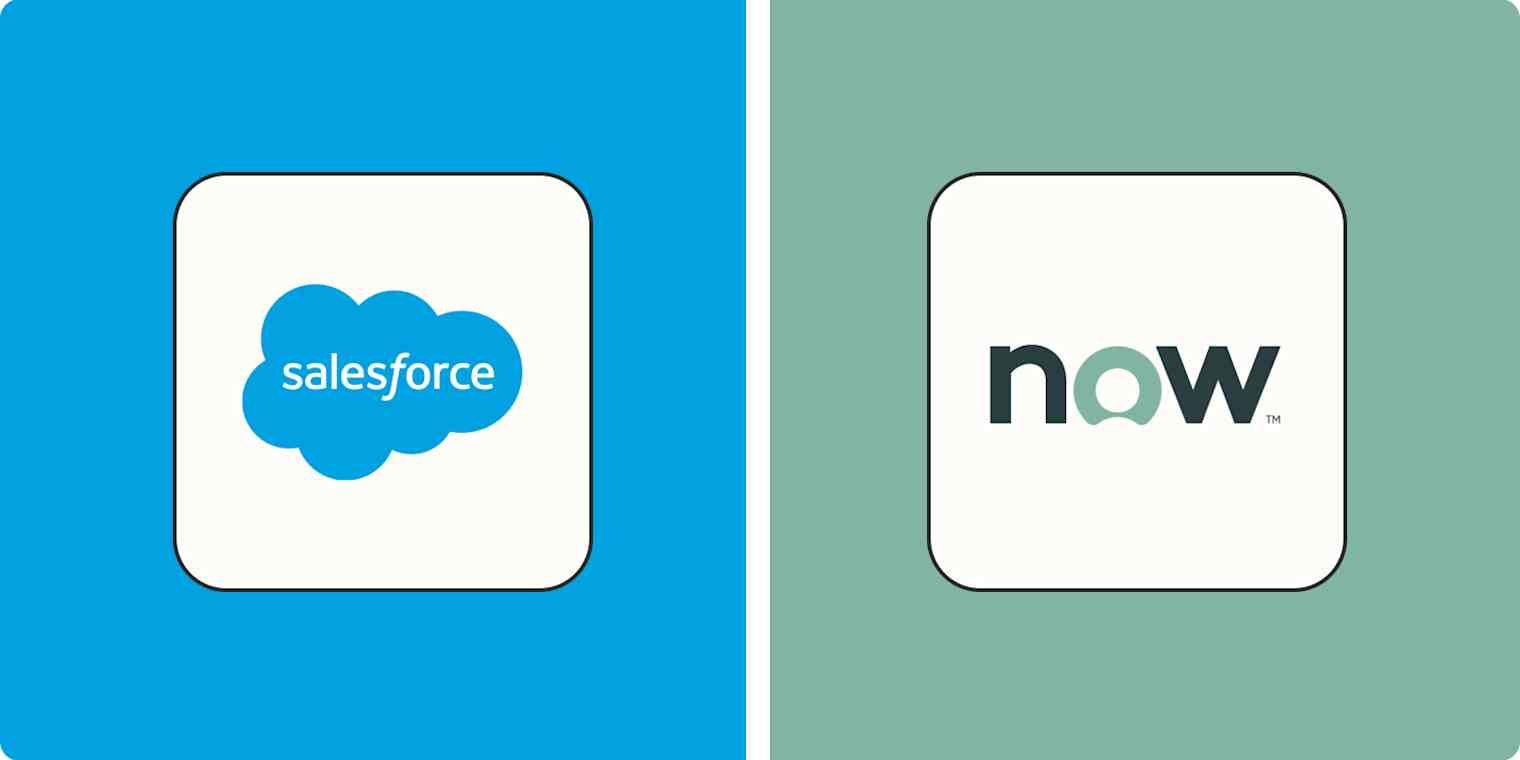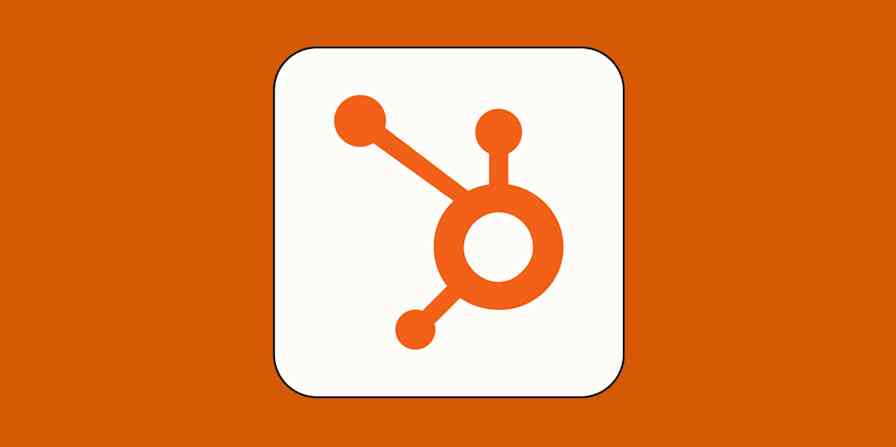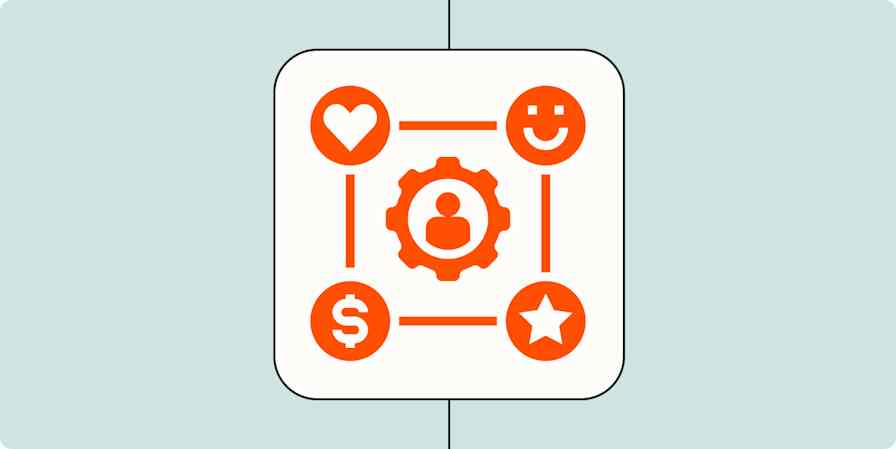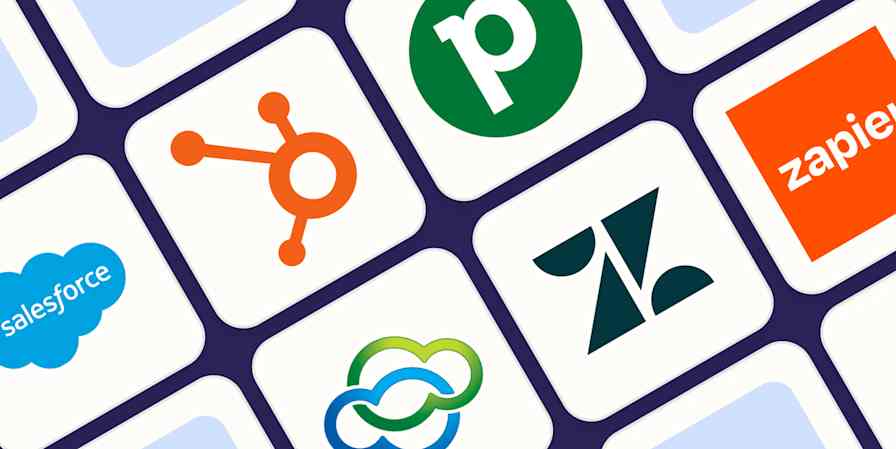There's a reason different bikes are built for different environments. You can ride a mountain bike in a city, but you'll probably hold up traffic. And you can ride a road bike on a dirt road—as long as you're into bumpy rides and hospital visits.
Comparing Salesforce vs. ServiceNow is kind of like comparing road bikes and mountain bikes. Salesforce is a more complete CRM that could be used for some IT service management tasks, while ServiceNow is dedicated ITSM software that could dabble in customer relationship management.
One's not uniformly better than the other, but one is probably much better than the other for its intended use. To show you key differences, I tested Salesforce's Sales Cloud and Service Cloud offerings alongside a ServiceNow developer instance to see how they compared. Here's what I found.
Salesforce vs. ServiceNow at a glance
Salesforce is a standard CRM with service-specific capabilities, while ServiceNow is an ITSM that has some functionality in common with a CRM. In practice, that means:
Salesforce is more versatile and can be used for managing some IT workflows, but it's not as robust as an ITSM product.
While ServiceNow can be used similarly to a CRM, it's not as effective. Instead, it's the industry standard for managing back-end IT workflows.
| Salesforce | ServiceNow |
|---|---|---|
Customer relationship management | ⭐⭐⭐⭐⭐ Salesforce is one of the industry's leading CRM products and has a huge array of tools for helping sales, marketing, and even service teams acquire leads and nurture them into customers | ⭐⭐ ServiceNow is an ITSM product and isn't designed to offer nearly as many tools for nurturing leads and converting customers, but it does have some crossover application that's similar to a CRM |
IT service management | ⭐⭐⭐ Even though Salesforce isn't meant to handle internal IT infrastructure management, it does have a strong suite of customer service tools to help agents stay on top of issues and service requests | ⭐⭐⭐⭐⭐ ServiceNow gives IT teams all the resources they need to manage internal infrastructure, field service requests, and provide IT services to customers |
Automation and AI | ⭐⭐⭐⭐⭐ Salesforce has industry-leading AI capabilities and a wide range of automation utilities for streamlining workflows across multiple teams | ⭐⭐⭐ ServiceNow's AI is much more limited than Salesforce's since it doesn't have sophisticated generative capabilities, but it has plenty of AI and automation utility specific to IT-related workflows |
Issue resolution | ⭐⭐⭐⭐ While Salesforce's flagship CRM is sales-oriented, its Service Cloud add-on extends utility to service agents with solid tools for issue resolution | ⭐⭐⭐⭐⭐ As an ITSM product, ServiceNow has rich issue resolution functionality for B2B, B2C, and internal use cases |
App building | ⭐⭐⭐⭐⭐ Salesforce's Lightning App Builder gives users an intuitive platform for building customer apps and apps that integrate with internal workflows | ⭐⭐⭐⭐⭐ ServiceNow's App Engine Studio gives IT teams a user-friendly low-code widget-based module for creating mobile and desktop apps for internal and external use |
Versatility | ⭐⭐⭐⭐ There's a huge range of cloud products within the Salesforce suite that can meet a wide range of use cases, but it lacks utility for back-end IT management | ⭐⭐⭐ While ServiceNow does have a broader array of tools for employees and customers, its use cases are more limited than Salesforce's |
Integrations | ⭐⭐⭐⭐⭐ AppExchange has over 7,000 apps; integrates with Zapier | ⭐⭐⭐⭐⭐ 900+ integrations; integrates with Zapier |
Pricing | A premium option with affordable lower tiers Starter Suite: $25/user/month Professional: $80/user/month Enterprise $165/user/month Unlimited $330/user/month Einstein 1 Sales $500/user/month | Pricing is by request only |
Quick note: CRM vs. ITSM
Before I go on, I should break down a couple key terms I'll be throwing around a lot.
Customer relationship management (CRM) software helps sales, marketing, and related teams communicate with customers, streamline workflows, and generally move leads through the customer lifecycle. It's used internally but affects external users as teams collect lead information and interact with leads through the software.
IT service management (ITSM) software helps teams handle back-end IT processes for businesses and their customers. Since this software is also an internal platform that can be used to manage external customer needs, it's similar in some ways to a CRM.
Salesforce is a pure CRM with service capabilities
I've always had trouble defining how Salesforce's many cloud products differentiate. The Sales Cloud CRM is the standard product I usually have in mind when I talk about Salesforce (and it's the one I have the most experience with), while Service Cloud is essentially an ITSM-esque module designed on top of the flagship CRM. Both offerings are priced identically and can be accessed interchangeably from the same dashboard.
This is all to say that even Salesforce's service offering is a CRM at its core. That means it can handle some elements of an ITSM, but it's designed more for sales and service agents and less for IT teams. We're talking things like automated case management, knowledge management, knowledge generation, order management, lead capturing, omnichannel communication, and live chat. Meanwhile, Sales Cloud offers more sales-focused functionality along the lines of lead management, contact management, sales pipeline management, lead tracking, and reporting.

I'm lumping Service Cloud in here because it's where the Salesforce/ServiceNow Venn diagram overlaps most. But while customer service agents and IT teams may approach customer incidents and service requests similarly, their roles and capabilities obviously differ widely—and so do their tools.
Looking for the right CRM to streamline your customer relationship workflows? Check out our rundown of the best CRM applications.
ServiceNow is a pure ITSM with some customer relationship capabilities
ServiceNow serves a notably different purpose than Salesforce: it's a pure ITSM. Rather than managing workflows related directly to turning leads into dollar signs, ServiceNow users are concerned with tools for things like privacy and security control, creating and optimizing apps, issue resolution for customers and internal teams, creating portals for customers and employees, automating IT workflows, managing IT-related assets, reporting incidents, and application testing.
Realistically, the goal of an ITSM is fundamentally the same as CRM software: to maximize revenue by streamlining workflows and enhancing customer experience. To that end, some of ServiceNow's tools interface with customers in a similar way to a CRM since IT needs directly affect them (more on that in the next section).
But the experience of using the software is definitely catered more to handling back-end processes and issue resolution. You won't see modules for leads or as many reporting and forecasting capabilities for metrics like lead conversions and earned revenue, but you will get more focused functionality for issue resolution, downtime/uptime, state and priority of instance, and all sorts of elements of infrastructure performance.
It's also worth noting that ServiceNow offers an additional suite of products for handling employee, customer, and creator workflows. Similar to how Service Cloud approaches but isn't really the same as an ITSM, ServiceNow's Customer Workflows product purports to "go beyond traditional CRM" but isn't really the same thing. While it does offer customer management tools like customer profiles, direct email capabilities, agent workspaces, customer self-service, and actionable case flows, it doesn't offer robust sales pipeline capabilities like a Salesforce-type CRM does.

Both apps have powerful automation and integration capabilities
Automation is a major draw for workflow management software of any kind, and both of these products have it in spades.
Salesforce's automation tools are, as you'd probably guess, focused on lead nurturing and sales-related tasks. You can build macros for handling common actions, set up triggers for automating action sequences when leads or agents take defined actions, generate smart workflows, leverage machine learning to get insights into customer behavior and internal processes, and even generate content across channels automatically via its Einstein GPT offering.

Note that Salesforce automation is pretty limited for bottom-tier subscriptions, but premium packages come with Flow Builder, which offers more sophisticated trigger sequences, scheduled automations, templates, and AI-based automations.
ServiceNow also has impressive automation capabilities—many of which do similar things to Salesforce's. You can incorporate AI-assisted search for front- and back-end users, design no-code automation sequences, get smart suggestions for automating current workflows, discover customer service automation opportunities, and deploy chatbots from automation sequences. The sequence builder is much more complex than Salesforce's, but it's also more customizable.

For growing enterprises, ServiceNow's Automation Engine offers scalable automation tools that go beyond standard trigger sequences. From a central automation repository, you can do things like automate data capture and integrate said data right into workflows using AI, automate process mining to help optimize protocols, and apply robotic process automations.
In terms of connecting to other apps, Salesforce and ServiceNow offer loads of native integrations (over 7,000 and 900, respectively). But the two apps also integrate with Zapier, which means you can connect them to all the other tools you use at work. Post notifications about high-priority incidents, add leads to your CRM, or even connect ServiceNow to Salesforce if you end up using both tools. Learn more about how to automate Salesforce, or get started with one of these pre-built templates.
Create Salesforce leads with new Gravity Forms submissions
Send WhatsApp Notifications for new records in ServiceNow
Create records in ServiceNow for every new task in Asana projects
Zapier is the most connected AI orchestration platform—integrating with thousands of apps from partners like Google, Salesforce, and Microsoft. Use forms, data tables, and logic to build secure, automated, AI-powered systems for your business-critical workflows across your organization's technology stack. Learn more.
Both tools allow you to build your own apps
Salesforce and ServiceNow also enable users to build custom apps.
Salesforce Einstein 1 Platform users can build internal apps on top of existing CRM data as well as customer apps with a low-code Lightning App Builder interface. Internal apps can then be integrated into workflows within the CRM and can even integrate Salesforce's proprietary AI.
ServiceNow's App Engine Studio gives users a low-code platform for building apps right out of the gate. Its clean UI has widgets and templates to help even novice users get desktop and mobile applications running seamlessly, and can integrate across just about any third-party application imaginable with a robust collection of APIs. This is definitely a strong ServiceNow feature for helping IT teams tailor their software solutions to meet team and customer needs.
Since both options have very functional app-building capabilities, this doesn't seem like much of a deal breaker if you're specifically looking for that kind of functionality. (Plus, you can always build no-code apps with other tools, like Zapier Interfaces.)
ServiceNow is the better platform for issue resolution
Salesforce's flagship CRM has some functionality for service agents to interact with customers and resolve issues when you access the Service module. You can easily contact customers via the native messaging or Outlook and Gmail integrations, connect to third-party messaging apps like WhatsApp and Slack, automate customer guides with AI, and field common service requests using AI-powered chatbots.
Using Salesforce's Service Cloud offering, you can focus more on updating cases, building and managing knowledge, tracking incident progress, managing problems and change requests, and building out reports on service-centric metrics like case lifecycles and solution histories.

ServiceNow users can do all of the above to resolve issues as well, plus a lot more. It also has functionality for higher-level service tasks like automated application framework testing, more robust service-level management capabilities, a more integrated service chatbot experience, a complete modular service portal, and an intuitive service catalog builder, so IT teams can address existing issues faster and prevent future issues more effectively.
ServiceNow is easily the better platform for issue resolution, which should be about as surprising as saying dogs are better at playing fetch than cats: one was wired for it on a very fundamental level, while the other can definitely do it but isn't quite as well designed for it (or in cats' cases, just not willing to).

Both have deeply integrated AI catered to their use cases
Salesforce was one of the first CRMs to put all their chips in on (and actually deploy) AI. As you've seen throughout this comparison so far, they've got tons of AI features integrated within various modules, workflows, and tools.
The affectionately named Einstein AI assistant uses OpenAI to offer generative capabilities so you can do things like create internal documents, draft emails, and summarize issues. Einstein can even be used for advanced utilities like creating smart assistants (code-free), providing predictive insights based on user behavior, and automating task scheduling.
Sales and service agents alike will appreciate many of these features, which are readily available (after ponying up $75 per month) for all users, no matter what they use Salesforce to do.
While a little later to the punch, ServiceNow has also become a leading platform for integrated AI. Predictably, its smart features are more specific to service and AIOps use cases.
As with Einstein, ServiceNow's Now Assist can do immensely helpful things like create customer responses, summarize chat transcripts, and suggest follow-up questions. It can also do more service-related tasks, like alert operators with more accurate plain-language alert analysis—not to mention it has AI functionality for specialized use cases like HR, portfolio management, and field service.
That's all to say that ServiceNow's AI is purpose-built for more specified IT and operations use cases, even down to its foundational language model, which uses a proprietary large language model that's designed to understand the kinds of queries ServiceNow users have.
Salesforce is more versatile than ServiceNow, but ServiceNow does things Salesforce can't
If you're still going back and forth between these two offerings, my general sense is that Salesforce comes closer to doing ITSM things than ServiceNow comes to doing CRM things. That's a complicated way of saying Salesforce is more versatile.
If you sign up for Service Cloud at the Professional tier or above and then add both Einstein 1 Platform and Einstein GPT subscriptions, you could potentially use Salesforce to manage a healthy amount of the customer-facing tasks that an ITSM is designed to handle. Meanwhile, ServiceNow isn't really equipped to handle many of the CRM-style tasks that Salesforce excels at.
So while you could use Salesforce to automate and manage customer issues, your team wouldn't really be able to tackle granular IT-related tasks on the back end (not to mention HR or field service workflows). And ServiceNow just isn't built to combine workflows for sales, marketing, and service teams.
In summary: ServiceNow is somewhat limited in its use cases, but if you need software that can manage tasks and workflows related to IT infrastructure specifically, Salesforce's versatility doesn't count for much. Think of it this way: if you want a one-stop CRM solution for your whole team (including service agents), go with Salesforce. If you want an ITSM and have an existing CRM application you like (that isn't Salesforce), go with ServiceNow.
Salesforce vs. ServiceNow: Which is best for you?
It should be pretty clear by now that these two products are positioned for very different use cases. But to tie a ribbon on it for anyone still uncertain about Salesforce vs. ServiceNow, here's my final conclusion:
For managing workflows across multiple teams specifically related to nurturing leads and interfacing with customers, Salesforce is the best choice.
For streamlining workflows related to back-end IT operations and managing IT infrastructure as it relates to both internal teams and customers, ServiceNow is by far the better choice.
Whether you go the CRM or the ITSM route, Zapier can connect your software of choice to a veritable mountain of applications to bring no-code automation to workflows across sales, marketing, and IT teams alike.
Related reading:
This article was originally published in June 2023. The most recent update was in June 2024.









